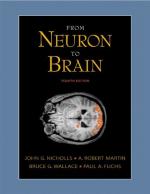|
This section contains 1,353 words (approx. 5 pages at 300 words per page) |

|
Central nervous system (CNS) stimulants are medicines that speed up physical and mental processes. They are used to treat attention-deficit hyperactivity disorder (ADHD), narcolepsy, and other disorders of the central nervous system. The most commonly used and well-known central nervous system stimulant is caffeine (also known as an analeptic drug). Other stimulants include amphetamines, such as dextroamphetamine sulfate (Dexedrine, DextroStat) and methamphetamine hydrochloride (Desoxyn), and nonamphetamine drugs such as, pemoline (Cylert), and methylphenidate (Ritalin). While the effects caused by CNS stimulants are dramatic, the therapeutic usefulness of these medications is limited due to their side effects.
CNS stimulants increase attention, decrease restlessness, and improve physical coordination in people who have ADHD, a condition in which people have unusually high activity levels and short attention spans. The drugs may also curb impulsive and aggressive behavior related to ADHD. Experts indicate that almost 30 percent...
|
This section contains 1,353 words (approx. 5 pages at 300 words per page) |

|


